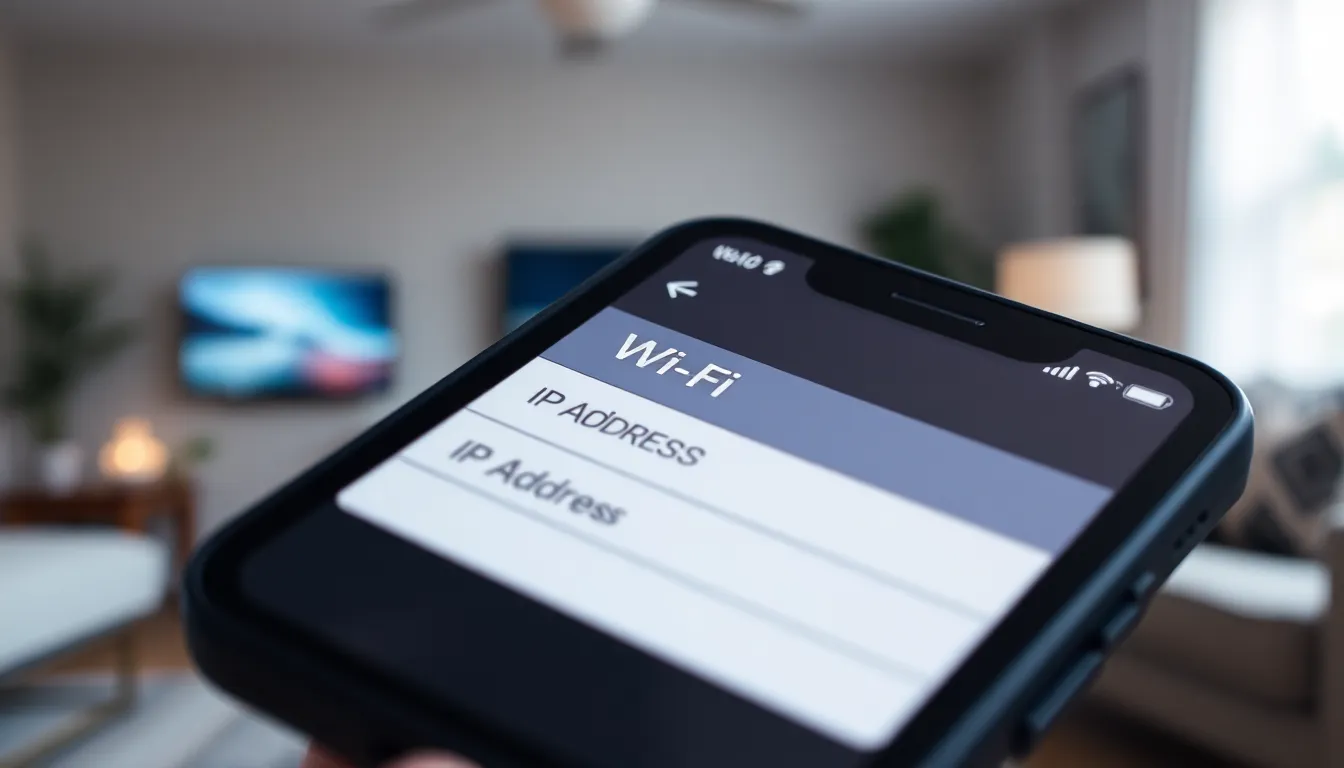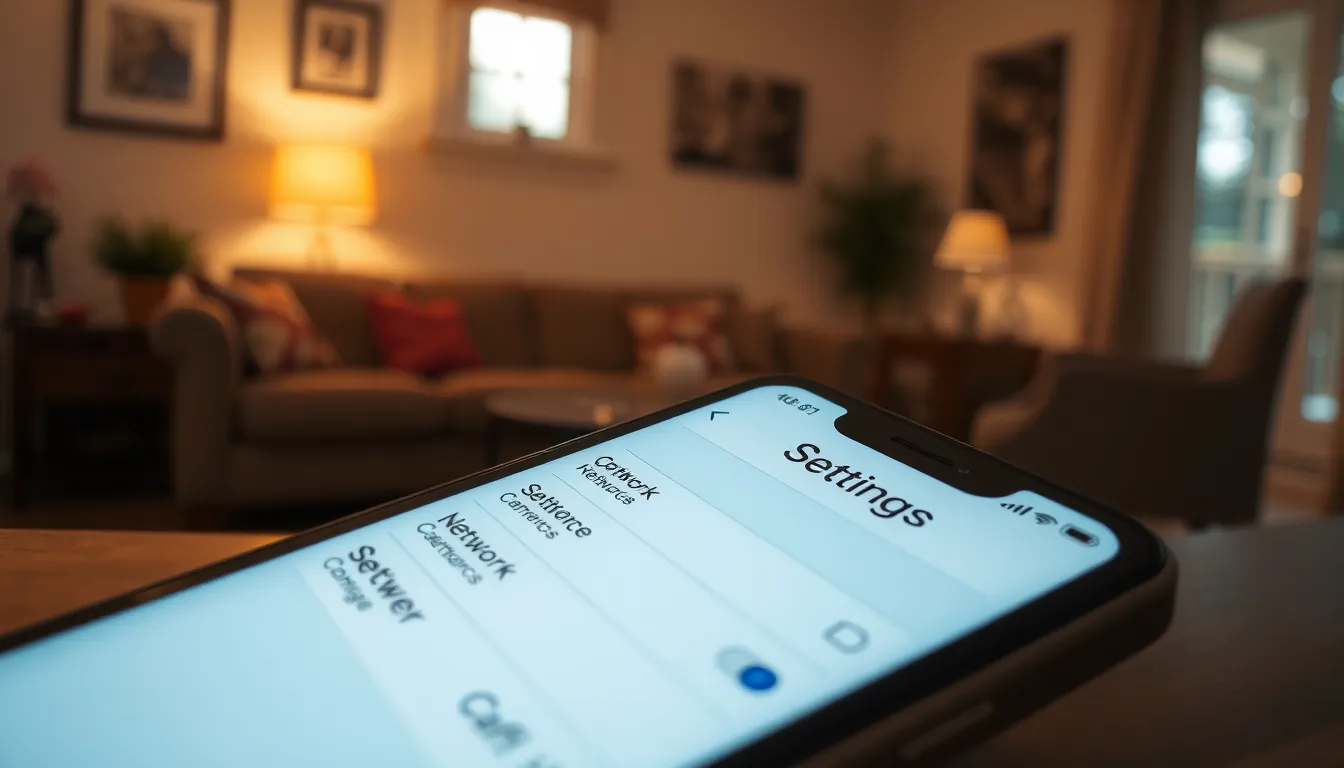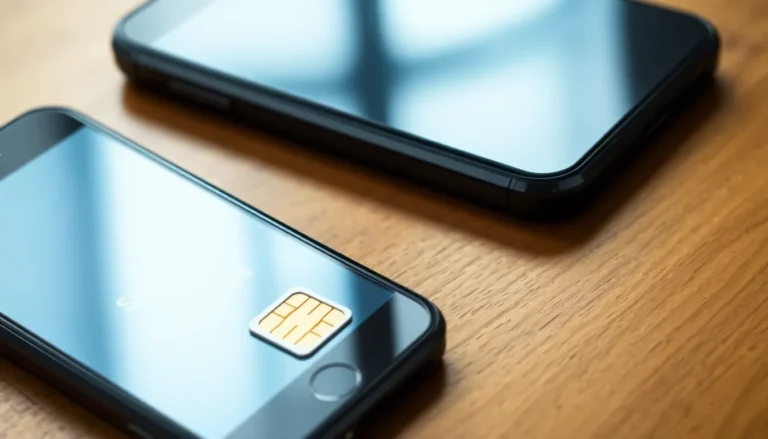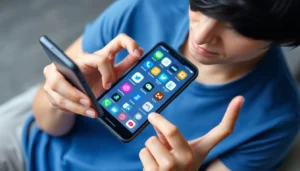Ever wondered if your iPhone has an IP address? Spoiler alert: it does! Just like a VIP pass at a concert, an IP address lets your device mingle with the internet crowd. Without it, your iPhone would be like a lost tourist in a foreign city—confused and unable to find its way home.
Table of Contents
ToggleUnderstanding IP Addresses
An IP address serves as a crucial identifier for devices connected to the internet, including iPhones. This unique number enables seamless communication between the iPhone and online services.
What Is an IP Address?
An IP address stands for Internet Protocol address. It represents a series of numbers assigned to devices that access the internet. Each device, such as an iPhone, requires an IP address to send and receive data. This address allows networks to route information to the correct destinations. Without an IP address, data packets would fail to reach the intended device, disrupting online activities.
Types of IP Addresses
Two main types of IP addresses exist: IPv4 and IPv6. IPv4 consists of four sets of numbers, each ranging from 0 to 255. For example, a typical IPv4 address looks like 192.168.1.1. IPv6 addresses, on the other hand, use eight sets of alphanumeric characters, accommodating a larger number of devices. Both types facilitate internet connectivity. Static IP addresses remain constant, whereas dynamic addresses change regularly, depending on the network configuration.
Does An iPhone Have An IP Address?

An iPhone does have an IP address, essential for internet connectivity. This unique identifier ensures communication with online services.
How to Find Your iPhone’s IP Address
To find an iPhone’s IP address, navigate to Settings. Select Wi-Fi and tap the information icon next to the connected network. The iPhone displays both IPv4 and IPv6 addresses. IPv4 addresses appear as four number sets, while IPv6 addresses present as alphanumeric strings. Users can also access this information via Settings, then Cellular, for cellular data-specific addresses.
Common Myths About iPhones and IP Addresses
Many people believe an iPhone connects to the internet without an IP address. This belief is inaccurate, as every device connected online requires an IP address for communication. Some assume static IP addresses are the only type used. In reality, dynamic IP addresses often change, depending on the network. Another common myth is that IP addresses remain constant. While static IPs do not change, many networks operate with dynamic addresses that shift frequently.
Importance of IP Addresses for iPhone Users
An IP address plays a vital role for iPhone users, facilitating their connectivity to the internet. Each iPhone receives a unique IP address, allowing it to communicate with networks, servers, and other devices. This connection empowers the user to browse the web, stream videos, and send messages seamlessly. Without an IP address, an iPhone cannot connect to the internet, rendering it unable to access digital content or services.
Connectivity and Network Access
Connectivity hinges on having an IP address. Each time an iPhone connects to a Wi-Fi network, it receives an IP address, ensuring efficient communication between devices. When using mobile data, the cellular network assigns a dynamic IP address, supporting ongoing access to the internet. Users can interact with various online platforms, download apps, and utilize cloud services through this essential identifier. In essence, the IP address functions as a gateway, enabling the iPhone to access a world of information and connectivity.
Privacy and Security Concerns
Privacy concerns arise with every IP address assigned. An IP address reveals a user’s approximate location to internet service providers and websites. Often, this data can be tracked, leading to potential privacy issues. Users should take measures to protect their IP addresses, such as using VPN services to mask their actual location and browsing habits. Security is paramount; an exposed IP address can make an iPhone vulnerable to targeted attacks or unauthorized access. By understanding how to manage their IP addresses, users can enhance their online safety significantly.
Troubleshooting IP Address Issues on iPhone
Troubleshooting IP address issues on an iPhone can help restore connectivity. Several common problems arise, and knowing how to address them enhances user experience.
Common Problems and Solutions
Connection failures often stem from an incorrect IP address configuration. Resetting network settings can resolve issues with Wi-Fi or mobile connections. Users should navigate to Settings, then tap General and Reset, where they can choose Reset Network Settings. Sometimes, the iPhone may fail to acquire an IP address from the router. Restarting the device and router can solve this problem effectively. Another frequent issue includes conflicting IP addresses on the network. Assigning a static IP address can prevent conflicts and improve connectivity.
When to Seek Professional Help
Recognizing when to seek professional help is important for resolving persistent IP address issues. If an iPhone consistently fails to connect after multiple troubleshooting attempts, contacting technical support may be necessary. Unexpected behavior or performance issues could signify a deeper problem that requires expert intervention. Additionally, users experiencing security alerts related to IP activity might consider professional assistance. Such concerns can indicate potential vulnerabilities that experts can address effectively. Prioritizing safety enhances online experiences and prevents further complications related to IP connections.
Understanding that an iPhone has an IP address is crucial for navigating the digital landscape. This unique identifier not only enables connectivity but also facilitates seamless communication with networks and online services.
Users can easily find their iPhone’s IP address through the Settings menu while being mindful of the privacy and security implications associated with it. Taking measures to protect their IP address can enhance online safety and prevent potential vulnerabilities.
By grasping the importance of IP addresses and troubleshooting any related issues, iPhone users can ensure a smooth and secure internet experience.







